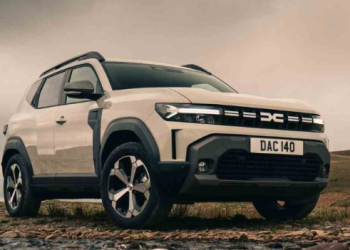South Africa’s Car Market Shifts into High Gear
November 2024 marked another strong month for South Africa’s automotive industry, as total vehicle sales climbed 8.1% compared to the same period in 2023. With 48,585 units sold, the market demonstrated resilience in the face of global economic headwinds. Compared to October 2024, sales grew by 643 units, continuing a promising end-of-year trend.
But behind the numbers is a dynamic market where brands jostle for dominance, consumers prioritize value, and global conditions shape local outcomes. Let’s take a closer look at the best-selling car brands, sales trends, and what it all means moving forward.
1. Toyota Remains Untouchable at the Top
With 12,108 sales, Toyota extended its long-standing reign as South Africa’s top-selling car brand. That figure represents a month-on-month gain of 217 units, reinforcing Toyota’s unique position as a brand trusted by private buyers, government entities, and fleet managers alike.
Toyota’s performance continues to be driven by:
- The Hilux, one of South Africa’s most beloved bakkies
- Consistently high after-sales support and resale value
- Strong representation in the commercial and government segments
Whether it’s a passenger sedan, SUV, or light commercial vehicle, Toyota’s offering continues to resonate with local buyers.
2. Volkswagen vs Suzuki: A Battle for Second Place
Volkswagen held onto second place with 6,321 units, a slight dip from the previous month. However, Suzuki was hot on its heels with 6,004 car sales—just 317 units short. The margin between the two continues to shrink, indicating an increasingly competitive race.
Volkswagen remains a household name, but Suzuki’s rapid rise can be attributed to:
- Competitive pricing across its range
- Compact, fuel-efficient models perfect for urban use
- Growing dealership network and enhanced customer support
If this trend continues, Suzuki may well overtake VW in coming months—a symbolic shift in the South African auto hierarchy.
3. The Full Top 10: Ranking the Leaders
South Africa’s best-selling car brands in November 2024:
- Toyota – 12,108 units
- Volkswagen (VW) – 6,321 units
- Suzuki – 6,004 units
- Ford – 3,071 units
- Hyundai – 2,940 units
- Isuzu – 2,081 units
- Chery – 2,006 units
- GWM (Great Wall Motors) – 1,847 units
- Kia – 1,662 units
- Renault – 1,505 units
Notably, Chinese manufacturers Chery and GWM continued their strong performances, challenging legacy brands like Hyundai, Kia, and Renault. Meanwhile, Ford maintained steady numbers, likely buoyed by the continued appeal of the Ranger.
4. Who’s Buying—And From Where?
A breakdown of November’s 48,585 car sales reveals that dealerships remain the dominant force:
- 81.2% of all new vehicles were sold through dealerships
- 14.6% went to rental companies (suggesting strong tourism or business travel demand)
- 2.4% were government purchases
- 1.8% were corporate fleet sales
The reliance on dealerships highlights the continued preference for hands-on, in-person car buying—even in the digital age.
5. Segment Breakdown: Passenger Cars Soar
The passenger car segment saw a 20% year-on-year increase, totaling 25,101 units. This growth is fueled by rising urbanization, demand for fuel-efficient models, and aggressive marketing from compact car brands.
In contrast, the light commercial vehicle (LCV) segment fell 16.3%, totaling just 10,287 units. This decline may be due to rising costs of bakkies and tighter credit conditions for small businesses and fleets.
6. Exports: A Worrying Decline
While the domestic market thrived, exports told a very different story. Only 30,431 vehicles were exported in November—a year-on-year drop of 28.6%. Even more concerning is that exports have declined by an average of 23.9% for the first 11 months of 2024 versus the same period in 2023.
Why the downturn?
- Tighter monetary policies in Europe and key African markets
- Weaker global demand for new vehicles
- Uncertainty in trade relationships and shipping costs
The Department of Trade, Industry and Competition (dtic) has announced its intention to investigate, but a clear path forward remains elusive.
7. The Rise of China’s Car Brands
Chery and GWM are no longer niche brands. Their November sales—2,006 and 1,847 units respectively—show consistent consumer interest. These brands offer:
- Feature-rich vehicles at aggressive prices
- Stylish design cues tailored for young professionals
- Rapid dealership expansion and competitive warranties
With continued growth, Chinese brands could disrupt the traditional top 5 by 2025.
8. Brand Momentum: Who’s Gaining, Who’s Slipping?
Gaining Ground:
- Suzuki: With steady monthly gains, Suzuki is turning into a volume powerhouse.
- Chery and GWM: Consistent growth, especially among urban consumers.
Holding Steady:
- Toyota: Still the most reliable performer month after month.
- Ford: Steady demand for commercial and dual-use vehicles.
Losing Momentum:
- Volkswagen: Flat sales and pricing challenges
- Renault: Continuing to fall behind in the face of newer, tech-savvy competitors
9. What’s Driving Buying Decisions in SA Right Now?
Several factors appear to be influencing car-buying choices in South Africa:
- Fuel efficiency: A top concern, particularly among urban and long-distance commuters
- Affordability: High interest rates and inflation are pushing buyers toward more budget-friendly models
- Technology: Features like wireless CarPlay/Android Auto, lane assist, and smart key systems are now expected, even in budget cars
- Brand reputation: Trust and after-sales service still matter greatly in consumer decision-making
Conclusion: The Road Ahead
South Africa’s car market is shifting, but it remains robust. Toyota continues to lead, Suzuki is closing in on second place, and Chinese automakers are gaining traction. Meanwhile, export woes cast a shadow on what’s otherwise a strong domestic outlook.
As 2024 draws to a close, all eyes are on whether Suzuki can overtake Volkswagen—and whether South Africa can reverse its export slump in 2025. For consumers, increased competition means better options, smarter features, and stronger deals.





